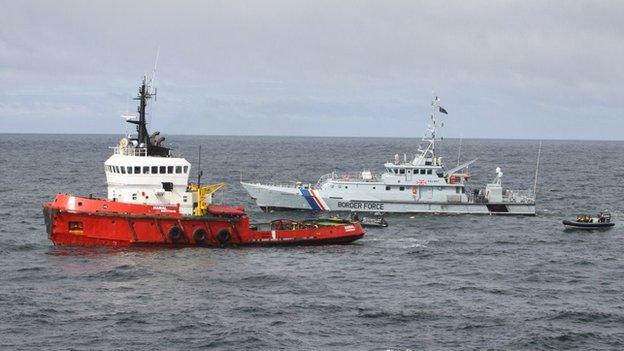Two men found guilty of smuggling £512m of cocaine
- Published
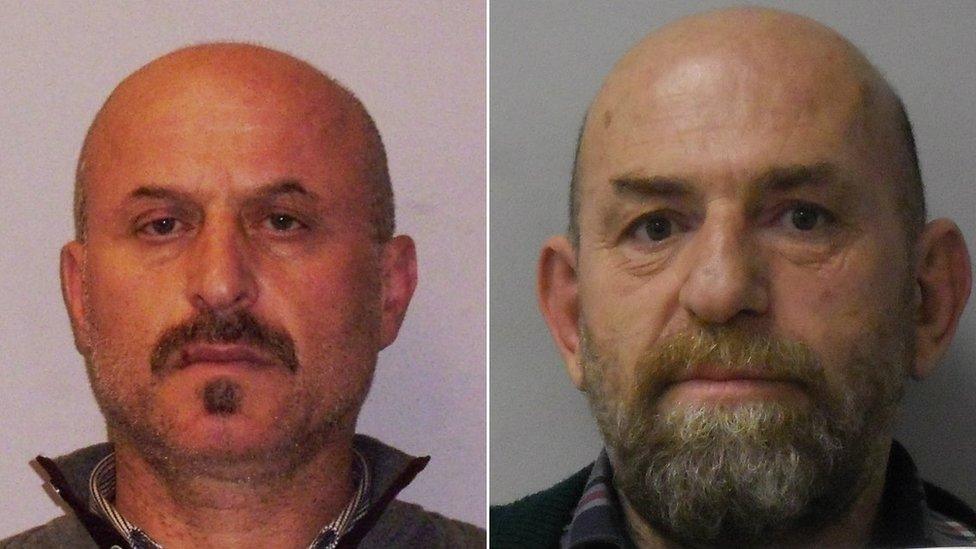
Mumin Sahin and Emin Ozmen were found guilty of smuggling £512m of cocaine
Two men who were in charge of a boat carrying cocaine worth £512m have been convicted of an international-drug smuggling operation.
Mumin Sahin, 47, and Emin Ozmen, 50, from Turkey, were caught after the MV Hamal was stopped 100 miles east of Aberdeenshire in April 2015.
A total of 3.2 tonnes of high purity cocaine was discovered hidden in a ballast tank at the front of the ship.
Sahin and Ozmen were found guilty at the High Court in Glasgow.
They were convicted of smuggling cocaine on the MV Hamal as well as a separate charge of being concerned in the supply of the drug.
Sahin, the skipper, held his head in his hands as the verdicts were announced.
Kayacan Dalgakirin, 54, Mustafa Guven, 48, Umit Colakel, 29, Ibrahim Dag, 48, were cleared of the allegations after the jury returned not proven verdicts.
UK Border Force makes a year's worth of cocaine seizures in one day with 3.2 tonnes find.

The vessel was boarded by a team from the Royal Navy frigate HMS Somerset and the Border Force
Three other men - Mustafa Ceviz, 55, Abdulkadir Cirik, 32, and Muhammet Seckin, 27 - were cleared earlier in the trial after the same charges were thrown out.
Judge Lord Kinclaven remanded first offenders Sahin and Ozmen in custody until sentencing next month.
The smuggling was said to have taken place between February and April last year.
Prosecutors stated that the boat travelled from Istanbul via Tenerife to South America then onto the North Sea.
The raid happened after the MV Hamal was halted in international waters and brought back to Aberdeen Harbour.
French customs had earlier been tipped-off that drugs were on board.
The vessel was intercepted by the Royal Navy warship HMS Somerset and Border Force officials.
Sahin was the captain of the boat with Ozmen second in command.
Colakel was third captain with Dalgakirin and Dag engineers while Guven was a seaman.

The National Crime Agency was involved in the raid on the MV Hamal
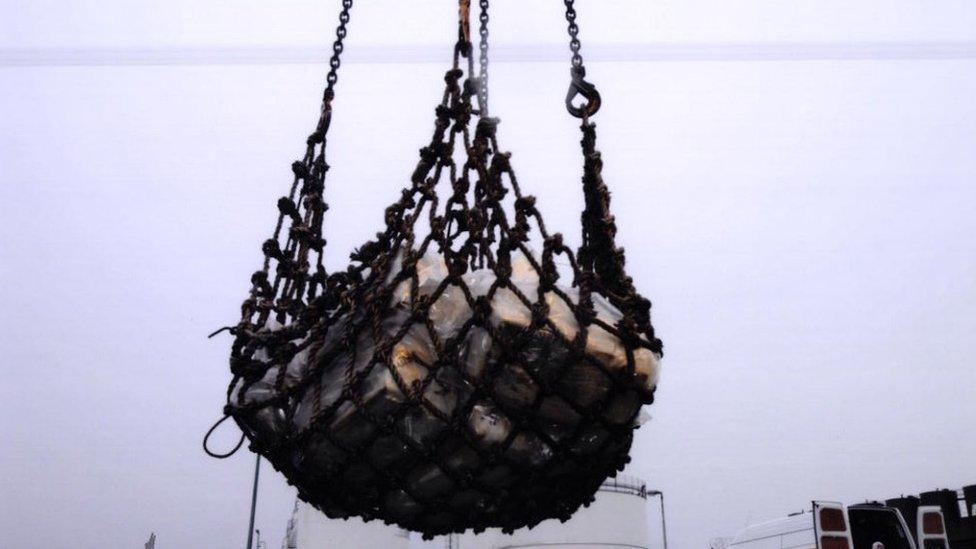
The cocaine haul was so big it took two days to remove it from the tug
A National Crime Agency (NCA) officer told the trial how he and his colleagues formed a human chain to painstakingly unload 129 bales of cocaine from the tug.
Alistair Gow recalled the haul being so big, it took two days to remove. This involved a specialist "deep rummage" team being deployed.
A crane was required at the quayside to then move the bales off the ship. In an unusual move - and amid tight security - <link><caption>the drugs were brought to court for the jury to see</caption><url href="http://www.bbc.co.uk/news/uk-scotland-north-east-orkney-shetland-36164965" platform="highweb"/></link>.
The purity of the cocaine ranged from between 58% and 74%.
Police drugs expert Jurgen Wahla revealed that the haul had a potential UK street value of £512m.
This would happen if the cocaine was adulterated to around 15% pure and sold in one gram deals.
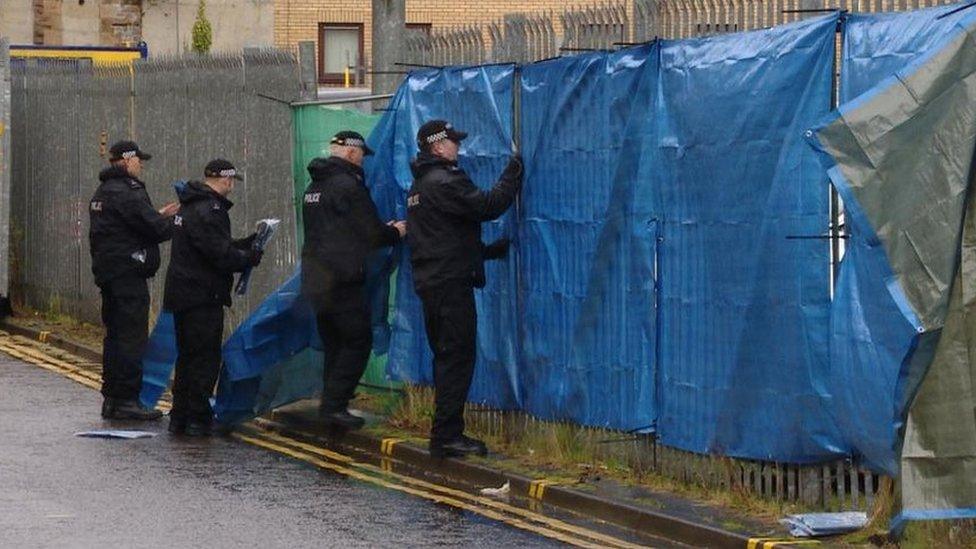
There was tight security when the drugs were brought to the court for the jury to see
Mr Wahla added: "It is a massive importation - unprecedented in what I've seen in my experience."
Mustafa Guven gave evidence during the trial.
The father-of-three recalled how he ended up on the Hamal after answering a job advert he spotted at a bus stop back in Turkey.
Guven had no previous experience of being employed on a boat - but said he was told during the call it was "not important".
Via an interpreter, he told the jury: "I thought it would be fantastic to work on the sea."
He said there had been an "agreement" the voyage would last six months, but, at first, he did not know where the ship was going.
'Intricate concealment'
Guven recalled the boat ending up in a number of locations including Greece, Tenerife and Guyana.
After the trial, NCA senior investigating officer John McGowan said they believed it was the biggest maritime seizure of cocaine in Europe.
"While we suspect that the end destination for this load would have initially been mainland Europe, there is no doubt, given the size of the seizure, that a good percentage would have ended up being sold in the UK and fuelling further criminality," he said.
And Tony McMullin, the regional director of the Border Force north region said it was one of the "most intricate concealments we've every encountered".
He added: "Once discovered, it took nearly three days for the team to remove all the cocaine bales from Hamal - demonstrating the scale of this operation and the ability and dedication of our officers."
- Published11 July 2016
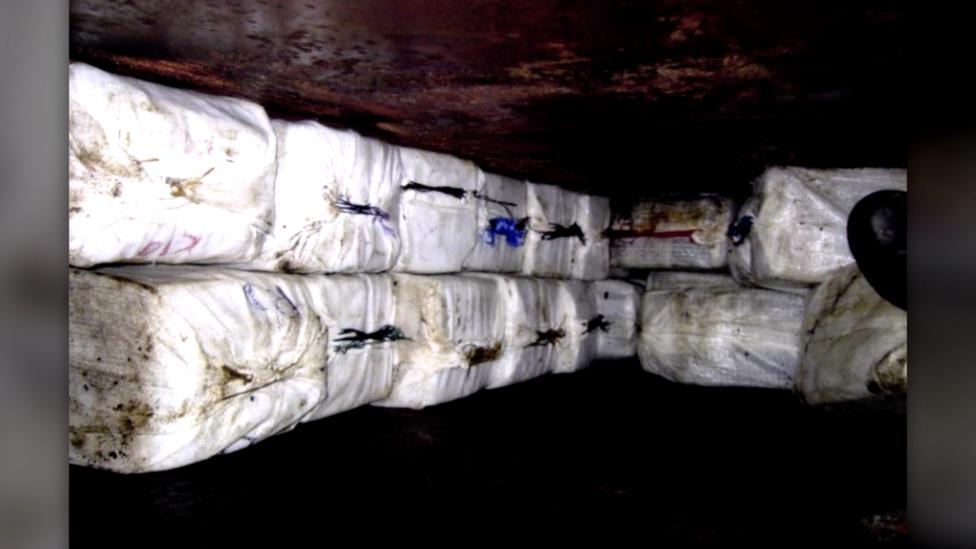
- Published13 June 2016
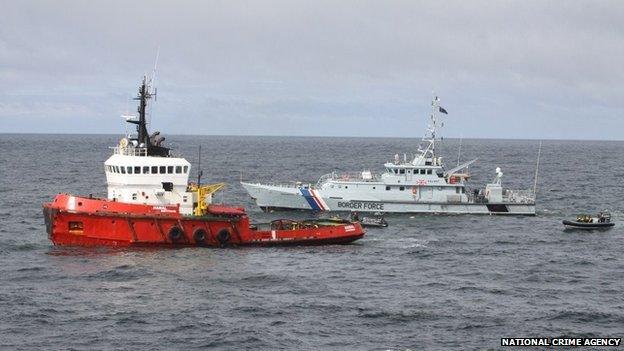
- Published28 April 2016
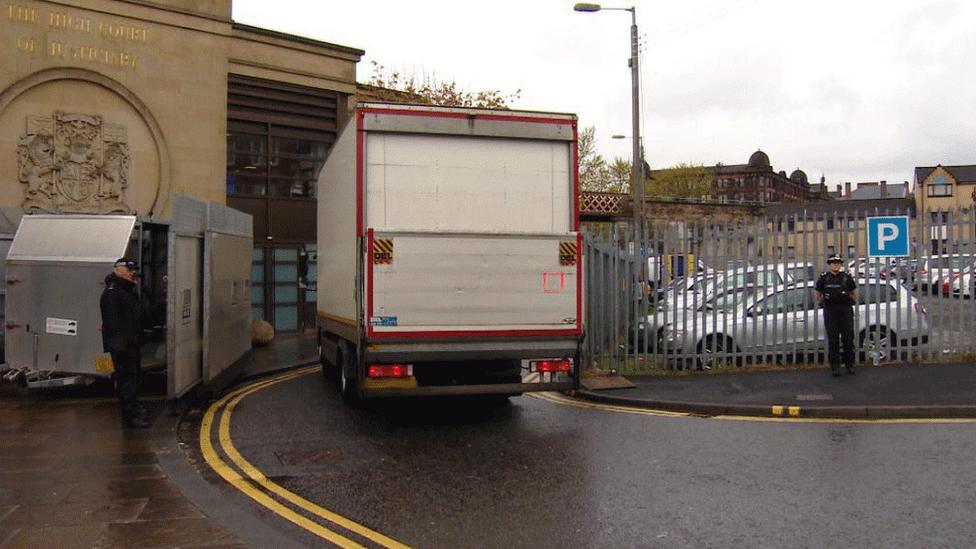
- Published30 April 2015
